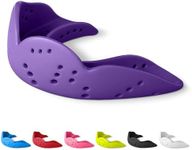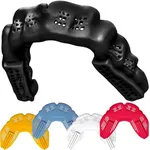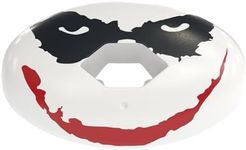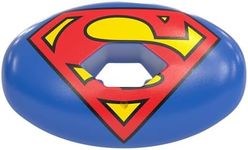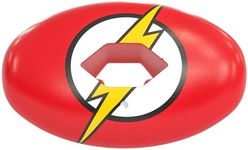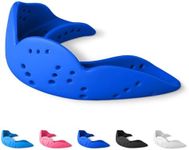Best Sports Mouthguard For Braces
From leading brands and best sellers available on the web.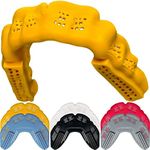
Bulletproof Mouthguards
Bulletproof: World’s Thinnest Most Breathable Mouthguard is 3X Stronger! Football MMA Hockey Rugby Basketball BJJ Lacrosse Boxing Sports Mouth Guard Grinding Teeth. Men Women Adult Youth Kids Braces
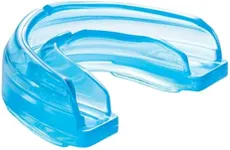
Shock Doctor
34%OFF
Shock Doctor Adult Braces Strapless Mouthguard, Adult , only top braces,Blue

Shock Doctor
35%OFF
Shock Doctor Mouth Guard for Braces, Upper Teeth Protection, Instant Fit, Adult & Youth Sizes,Blue
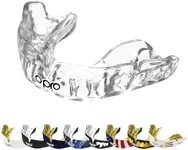
OPRO
OPRO Instant Custom-Fit Mouth Guard, Dentist-Level Comfort, Protection & Fit - Moldable Mouthguard for Football, Boxing, Rugby, MMA, BJJ, UFC Mouth Piece- Includes Mouth Guard Case (Clear, Adult)
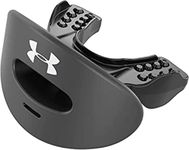
Under Armour
Under Armour Lip Gaurd for Football, Football Mouth Guard With Strap, Football Mouthpiece, Full Mouth Protection, Football Mouth Guard for Braces, Lip Guard Mouth Piece, Adult and Youth Mouth Guards
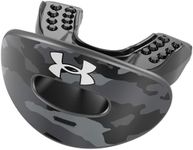
Under Armour
17%OFF
Under Armour Football Lip Guard with Strap - Full Mouth Protection for Braces, Adult & Youth, Black Camo

SISU
SISU 3D Mouthguard, Charcoal Black - 2.0mm Thin - for Athletes Over 5’ Tall - Pre-Formed for Custom-Molded Fit - Remoldable Up to 20 Times - Non Toxic
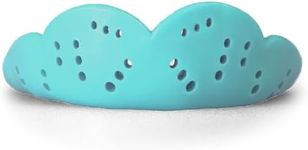
SISU
SISU Max Mouthguard, Awesome Aqua - 2.4mm Thin - Custom-Molded Fit - Slim Design - Remoldable Up to 20 Times - for Impact Sports - Non Toxic - Works with Braces
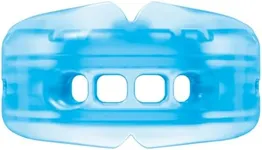
Shock Doctor
41%OFF
Double Braces Strapless Mouth Guard, Blue, Adult
Our technology thoroughly searches through the online shopping world, reviewing hundreds of sites. We then process and analyze this information, updating in real-time to bring you the latest top-rated products. This way, you always get the best and most current options available.

Most Popular Categories Right Now
